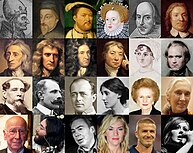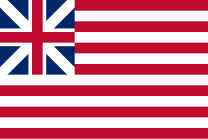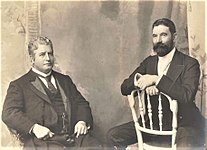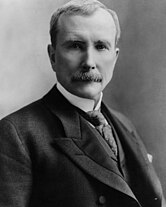Ingiriis (Dad)

|
| qaar ka mid ah dadka caanka ah |
| Thiinada guud ee dadka |
|---|
| 103,3-110M”Millions’(est.2023’)2.9+Millions:Australia |
| Meelaha ay ku badan yihiin |
| Luqada |
|
Af-Carabic & Swahili.:.!!'?..!!'” |
| Xigasho |
| a English American, b English Australian, c English Canadian |
Dadka Ingiriiska (Af Ingiriis : English; Af-Carabi: إنجليز) waa bulsho iyo qoomiyad ka soo jeeda wadanka Ingiriiska, kuwaasi oo ku hadla luuqada Af-Ingiriisi.:•
Big reasons why US and UK English sound so different.!!
By Тom. in Language learning· 5 min read.
05 big reasons why US and UK English sound so different We may share a language but there’s nothing similar when it comes to hearing someone from the US speak to someone from the UK. Everything from putting a z everywhere to words that are spelt the same but sound entirely different when you say them – there’s a whole ocean of linguistic differences (plus an actual physical ocean) between the world’s two major English-speaking players. But never fear! If you’re learning English in London and want to know what makes your accent different from your friend learning in New York, here’s what you need to know.!!
01. American English is actually more like German and getting older.!!'
This isn’t something you should tell to a British person, because we’re the country that gave birth to America as we know it today – but this fact really is true. When the first settlers set sail from England to America, they took with them the common tongue at the time, which was based on something called rhotic speech (when you pronounce the r sound in a word). Meanwhile, back in wealthy southern cities of the UK, people from the new higher classes wanted a way to distinguish themselves from everyone else, so they started changing their rhotic speech to a soft r sound, saying words like winter as “win-tuh” instead of “win-terr”. Of course, these people were posh and everyone wanted to copy them, so this new way of speaking – which British people now refer to as Received Pronunciation – spread across the rest of the south of England. It also explains why many places outside the south of England still have rhotic pronunciation as part of their regional accents. Basically, if you speak English from London, you sound more posh. Win.!!'
02. British English is more like French.!!'?
French has influenced English in more ways than English speakers would care to admit. The first time was when William the Conqueror invaded Britain in the 11th Century (more on the history of English here), bringing Norman French with him and making it the high language – used in schools, courts, universities, and the upper classes. It didn’t stick around, but instead evolved into Middle English, which was a mashup of all the linguistic influences around at the time. The second time was during the 1700s, when it became super trendy in the UK to use French-style words and spelling. Of course, Americans were already living their lives across the Atlantic and didn’t take part in this trend at all. This is why British English has more linguistic similarities to French than American English, and also explains our obsession with croissants. Or maybe that’s just me.
03. American spelling was invented as a form of protest.!!'
The American and British dictionaries are very different, because they were compiled by two very different authors with two very different perspectives on language: the UK’s dictionary was compiled by scholars from London (not Oxford, for some reason) who wanted to just collect all known English words, while the American one was made by a lexicographer called Noah Webster. Webster wanted American spelling to not only be more straightforward but different from UK spelling, as a way of America showing its independence from the former British rule. He dropped the letter u from words like colour and honour – which had developed from the French influence in England – to make them color and honor instead. He did the same to words ending in -ise to make them -ize, because he thought American English spelling should reflect the way it was said. Plus, z is a much cooler letter to write, so there’s that.
04. American English likes to drop words completely.!!'
Sometimes there are differences in American English that make no sense to speakers of British English – like when Americans remove entire verbs from a sentence. When an American person tells someone they’ll write a letter to them, they say “I’ll write them”. When you ask an American if they want to go shopping, they might say “I could”. In the UK these replies would sound really weird, as we would say “I’ll write to you” and “I could go”. Dropping the verb might be because Americans want to say stuff faster – or maybe it’s because the British just like to spell out exactly what they’re saying. Nobody’s right here, but if we were to declare a winner it would be British English, because frankly the American way doesn’t make sense. Not that I’m biased.
Test your English in minutes.!!
Learn more 5. The two types of English have borrowed words from different languages.
It’s clear that British and American English have evolved differently when you consider the cultural influences that have affected each independently, and how they’ve borrowed words from those languages. For some reason this is very common with words for food: examples include coriander (British, derived from French) and cilantro (American, derived from Spanish), and aubergine (British, derived from Arabic) and eggplant (American, so called because it looks like a purple egg). There are many more examples, but the important thing to remember is to get it right in the country you’re studying in. After all, you don’t want to be asking British people for some aluminium foil and pronouncing it aloo-minnum. Let’s just not even go there.!!
Get the latest on travel, languages and culture in the GO newsletter.
[2].:•
[3].:•
[4].:•
[5].:•
[6].:•
[7].:•
Bilowggii
Dadka Ingiriisigu waxay tixraacaan dadka haysta dhalashada Ingiriiska ama asal ahaan Ingiriiska. England waa mid ka mid ah quruumaha ka tirsan jasiiradda Great Britain. Waxay jasiiradda la wadaagtaa Scotland (Scots) iyo Wales (Welsh-ka).
England sidoo kale waa qayb ka mid ah Boqortooyada Ingiriiska oo ay weheliso Scotland, Wales iyo Northern Ireland. Sababtaas awgeed, dadka Ingiriisku waa dad Ingiriisah.
Asal ahaan, dadka Ingiriisku waxay ka soo farcameen Anglo-Saxon iyo Celts. Dadka Ingiriisida casriga ah waxay inta badan leeyihiin awoowayaal dalal kala duwan ka yimid. Badanaa, awoowayaashood waxay ka yimaadeen wadamada kale ee Yurub iyo adduunka intiisa kale.
Dhalashada
Dad badan ayaa ka taga Ingiriiska si ay ugu noolaadaan dalalkii uu Ingiriisku gumaysan jiray. Kuwaas waxaa ka mid ah Ameerika, Australia iyo Kanada. Wadamada ay ku nool yihiin dadka ugu badan ee Ingiriisi ah, marka laga reebo Boqortooyada Ingiriiska.:• Waa Ameerika, Australia, Kanada, iyo New Zealand iyo Sub World.:• !!
Dhaqdhaqaaqa jihada kale ayaa xitaa ka sii muhiimsan. Qiyaastii 40 ilaa 44 milyan oo qof oo ku nool waddamo kale ayaa gebi ahaan ama qayb ahaan ka soo jeeda Ingiriiska. Xogta tirakoobku waxay caddaynaysaa hadalladan.[8].!!
Muuqaalo
- Sawiro
-
Calanka Boqortooyada Midowday.:”
-
Calanka: America.!!’.:”
-
Calanka Ustareliya.:
-
CalankaNiyuusiilaand .:”
-
Farshaxanka iyo hidaha iyo dhaqanka dadka Ingiriiska
-
Mid ka mid ah boqoradii soo xukumi jiray boqorooyada Ingiriiska
-
Madaxweynihii koowaad ee Maraykanka-oow. Mudane George Washington wuxuu asal ahaan ka soo jeedaa dadka Ingiriiska.!!'
-
Maabka iyo sida u degan yihiin wadanka Ingiriiska.!!
-
American industrial, Political, and "Banking "Roockfeller's FAMILY" that owns one of the world's largest fortunes In "EUROPE" and Along "Roothchild's FAMILY" Owns "The GAINT Tech Trillion's STOCK's" CoMpaNi3$ also known as the Tech TITANS: also an Ameerikan's.!!'
-
Calanka Gobolada Midoobay.:”
-
Calanka: Kanada.:”
-
Calanka Midowga Yurub: (MY) waa mid siyaasadeed iyo mid dhaqaale oo ka kooban 25+ xubnood oo xubin ka ah Midowga Yurub.:
-
Calanka Gobolada Midoobay.:”
-
FAAMG is an acronym for the stocks of an "American" based Tech companies: Google, Apple, Facebook, Amazon, and Microsoft; FAANG stocks include much the same stocks, but replacing Microsoft with Nvidia Corp..!!'
File:Flag of the United Nations.svg|Waa calanka iyo astaanta Qaramada Midoobay kaasi oo ka samaysan sumad Qariirada aduunka]].:" [12]. in.:•
Tixraac
Maqaal kaan malahan xigasho ama xog xaqiijin ah. |
Ingiriis (Dad) Boqortooyada Midowday
- ↑ The [http://www.ons.gov.uk/ons/rel/census/2011-census/key-statistics-for-local-authorities-in-england-and-wales/rpt-ethnicity.html#tab-National-identity-in-England-and-Wales. In 2011 England and Wales census] reports that in England and Wales 32.4 million people associated themselves with an English identity alone and 37.6 million identified themselves with an English identity either on its own or combined with other identities, being 57.7% and 67.1% respectively of the population of England and Wales.
- ↑ https://worldpopulationreview.com/country-rankings/english-speaking-countries
- ↑ https://www.businessinsider.com/elon-musk-family-tree?amp
- ↑ https://www.babbel.com/en/magazine/difference-between-britain-england-and-the-uk#:~:text=English%20refers%20only%20to%20people,or%20England%20are%20considered%20British.
- ↑ https://tv-english.club/articles-en/entertainment/25-unusual-facts-about-britain-and-british-people/
- ↑ https://www.ef.com/wwen/blog/language/why-us-and-uk-english-sound-so-different/
- ↑ https://www.lingoda.com/en/content/english-speaking-countries/#:~:text=The%20English%20language%20has%20approximately,single%20most%20popular%20second%20language.
- ↑ https://www.pewresearch.org/religion/2015/04/02/religious-projections-2010-2050/
- ↑ https://www.history.com/news/first-earliest-human-civilizations
- ↑ https://www.worldsbestcities.com/rankings/worlds-best-cities/
- ↑ https://www.forbes.com/sites/laurabegleybloom/2023/06/21/ranked-20-best-cities-to-live-in-the-world-according-to-a-new-report/amp/
- ↑ (Ethnic origin)The [1]















